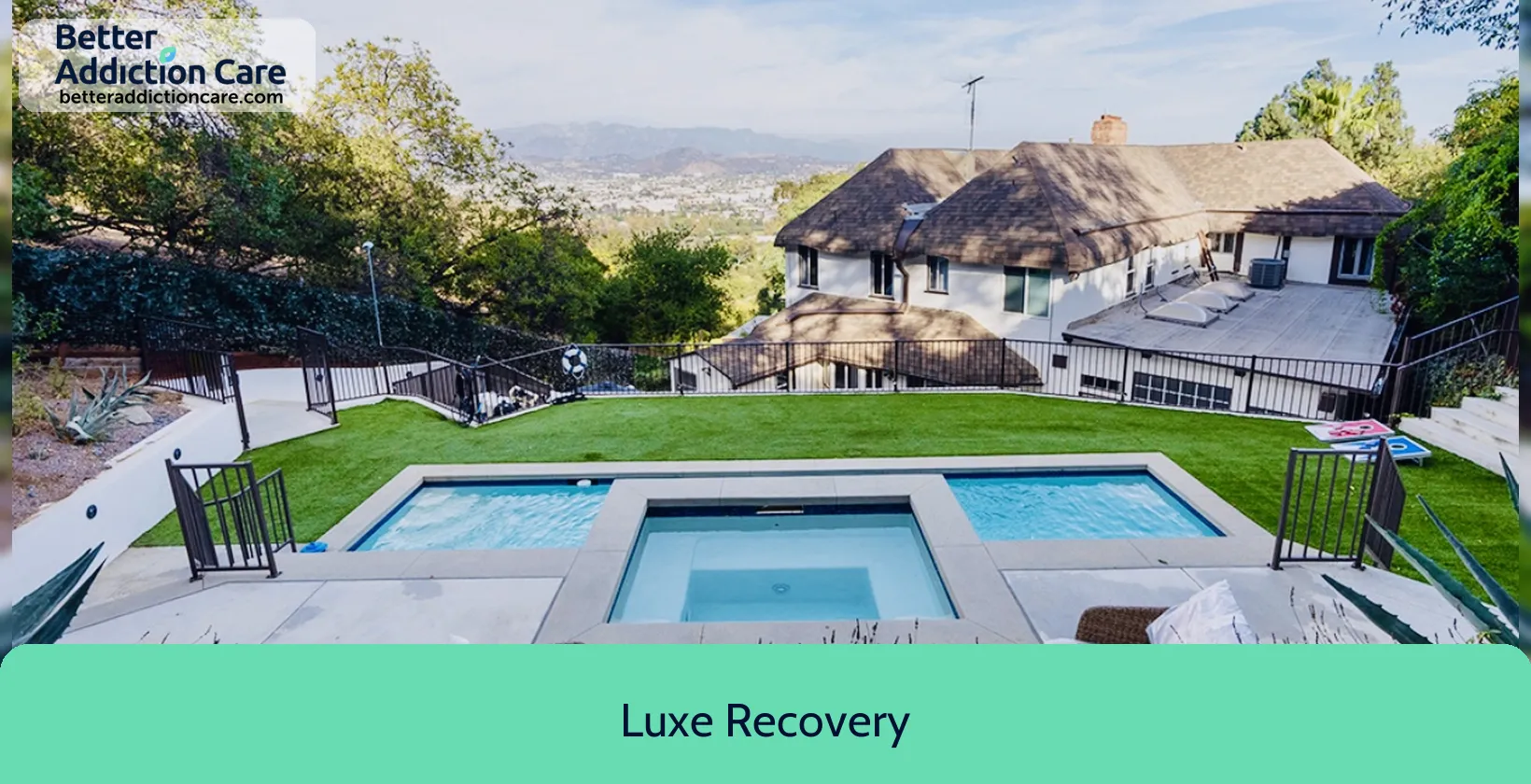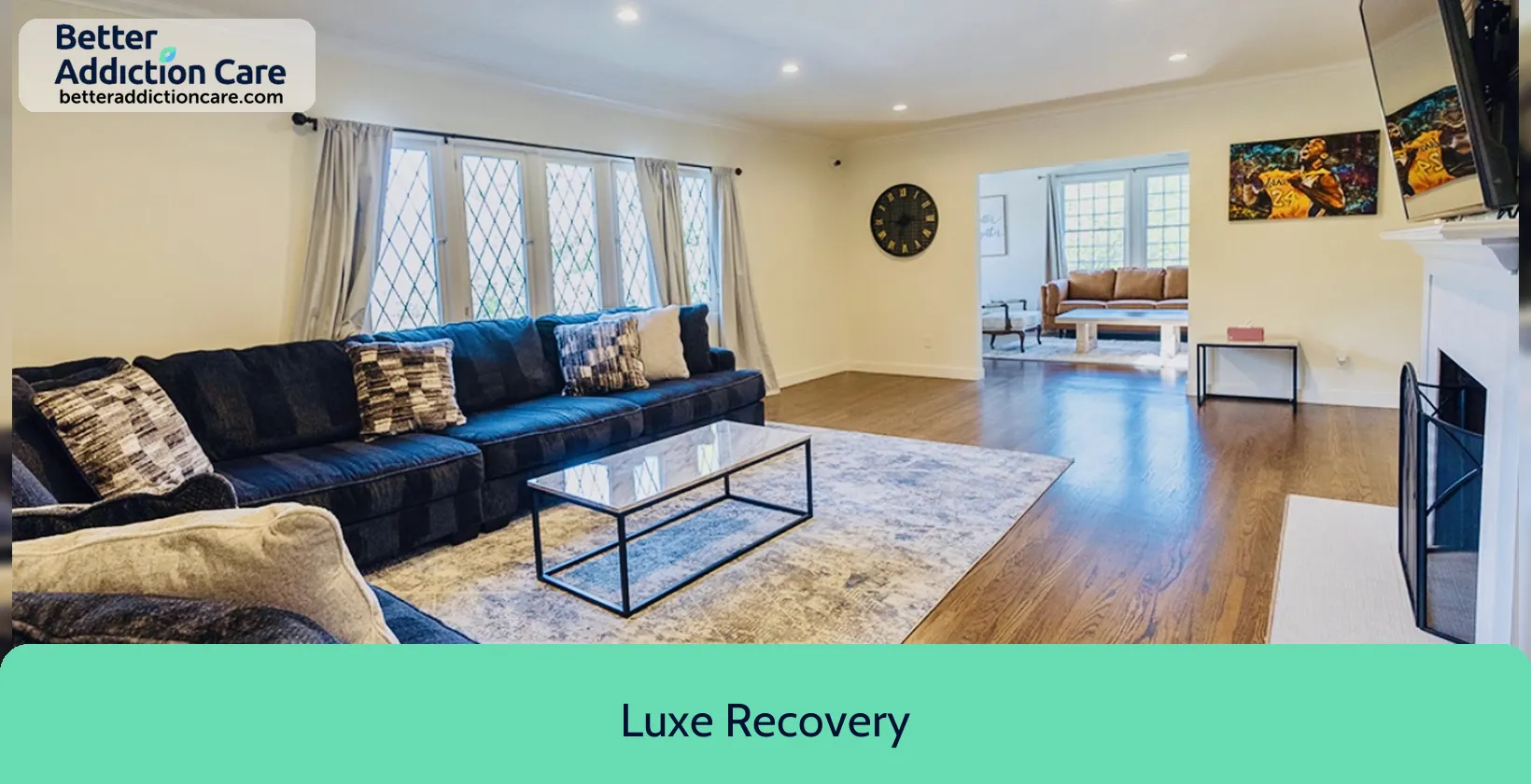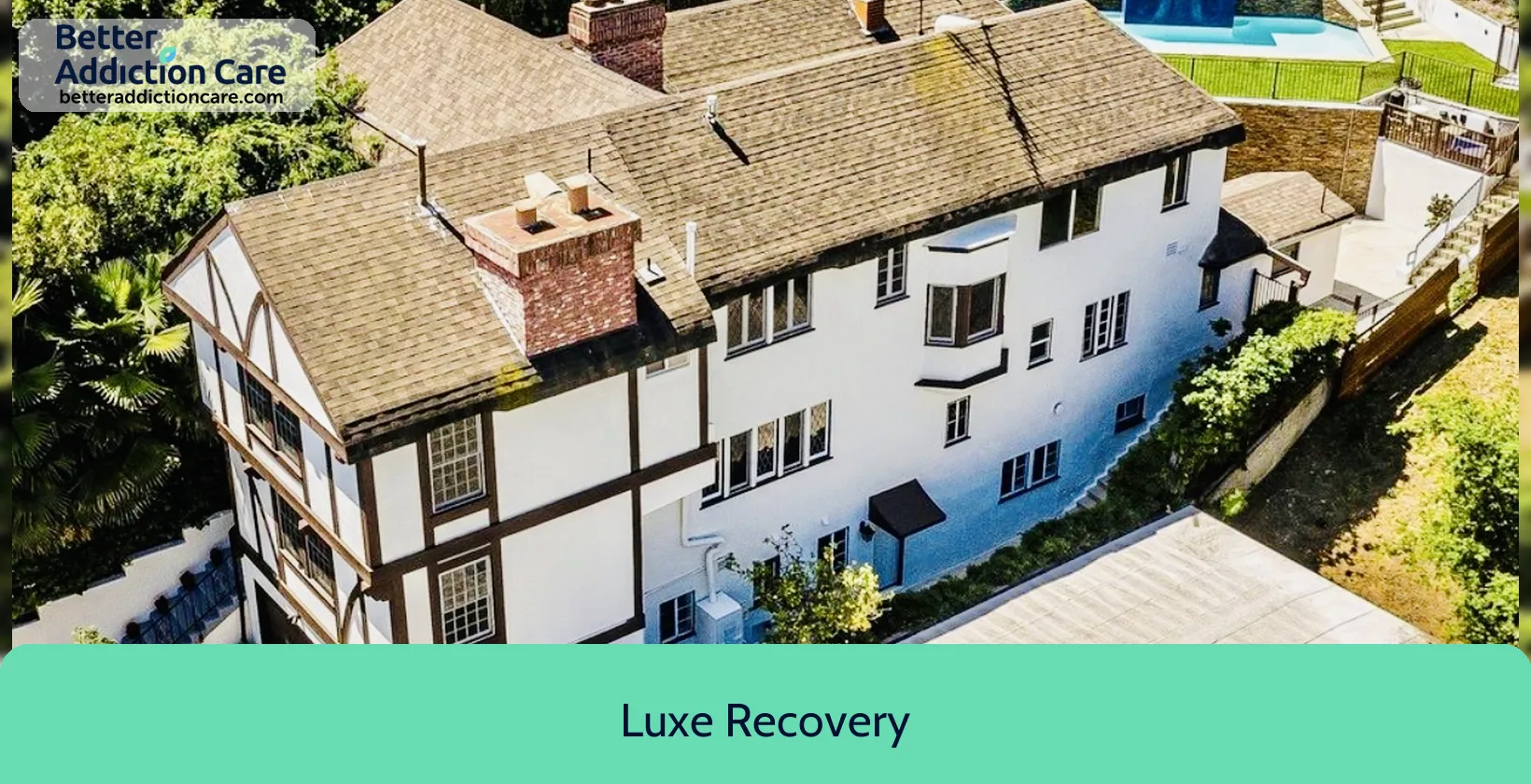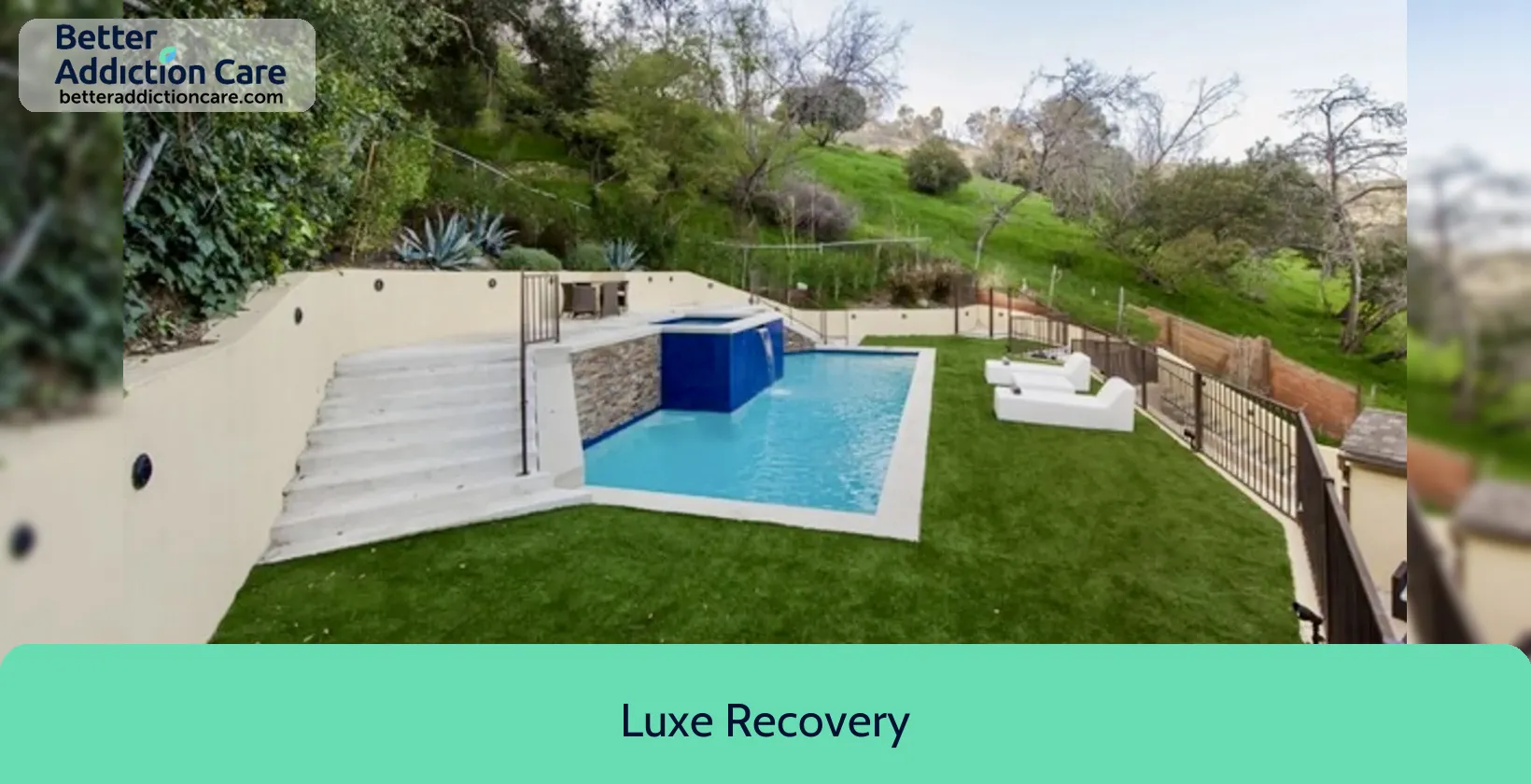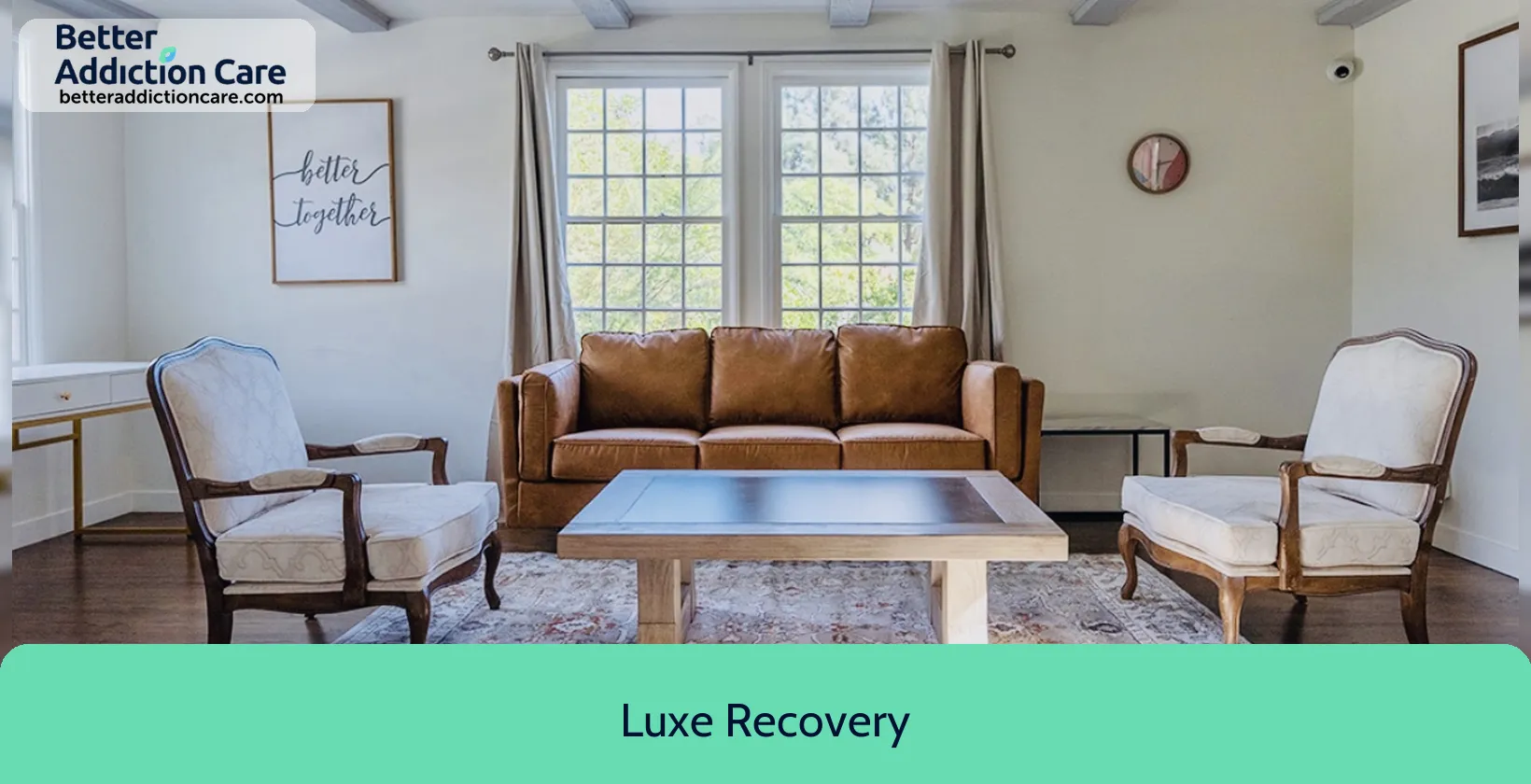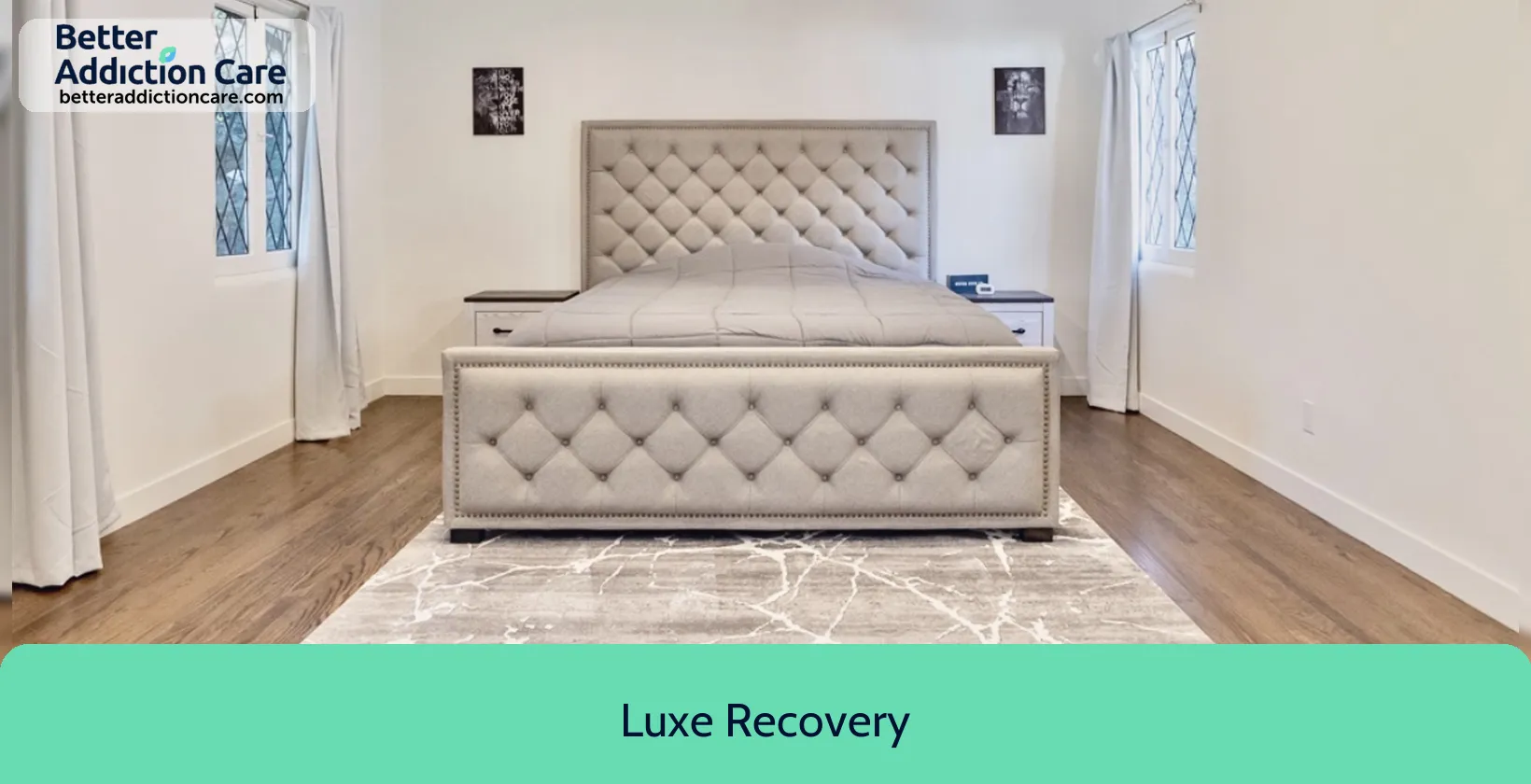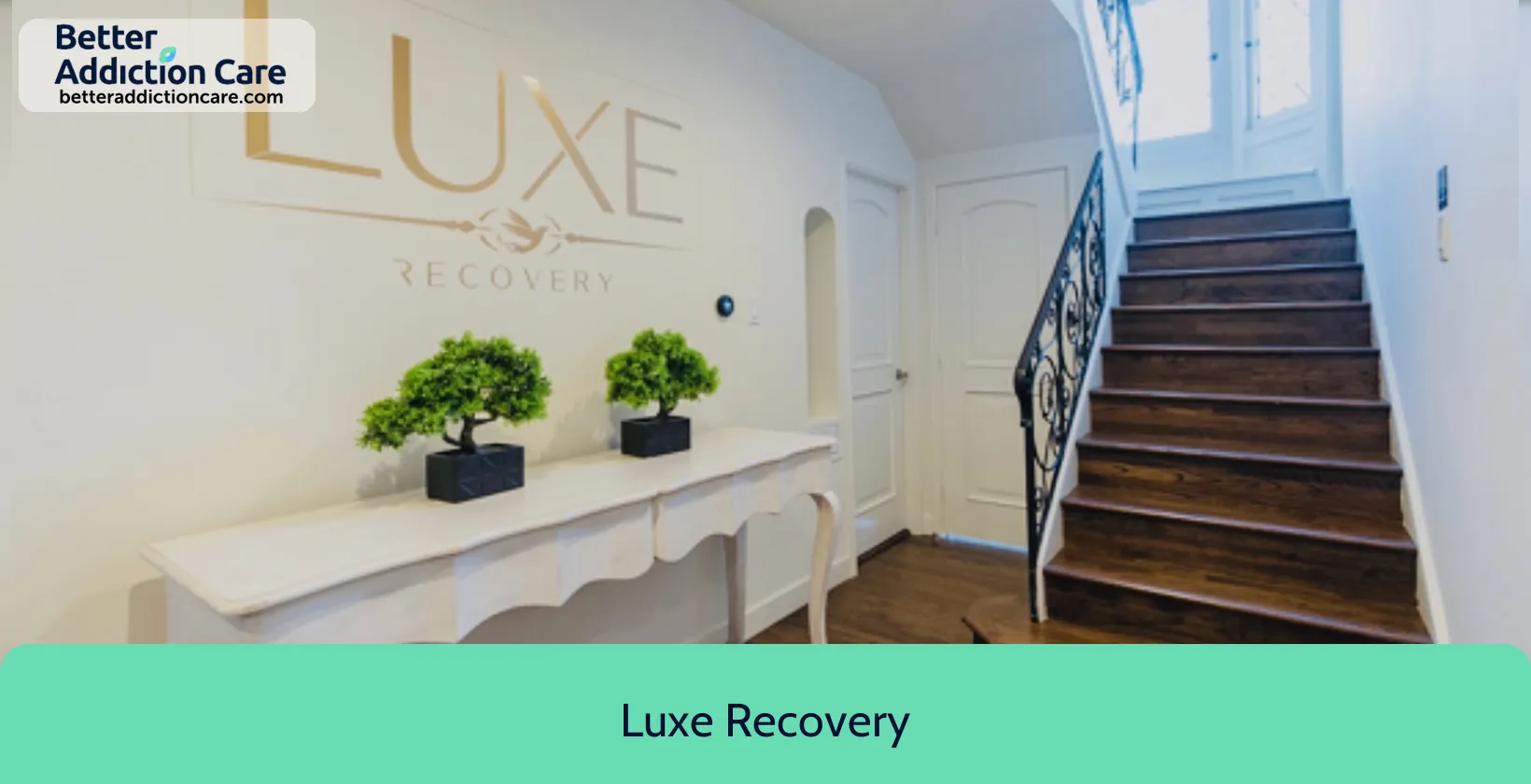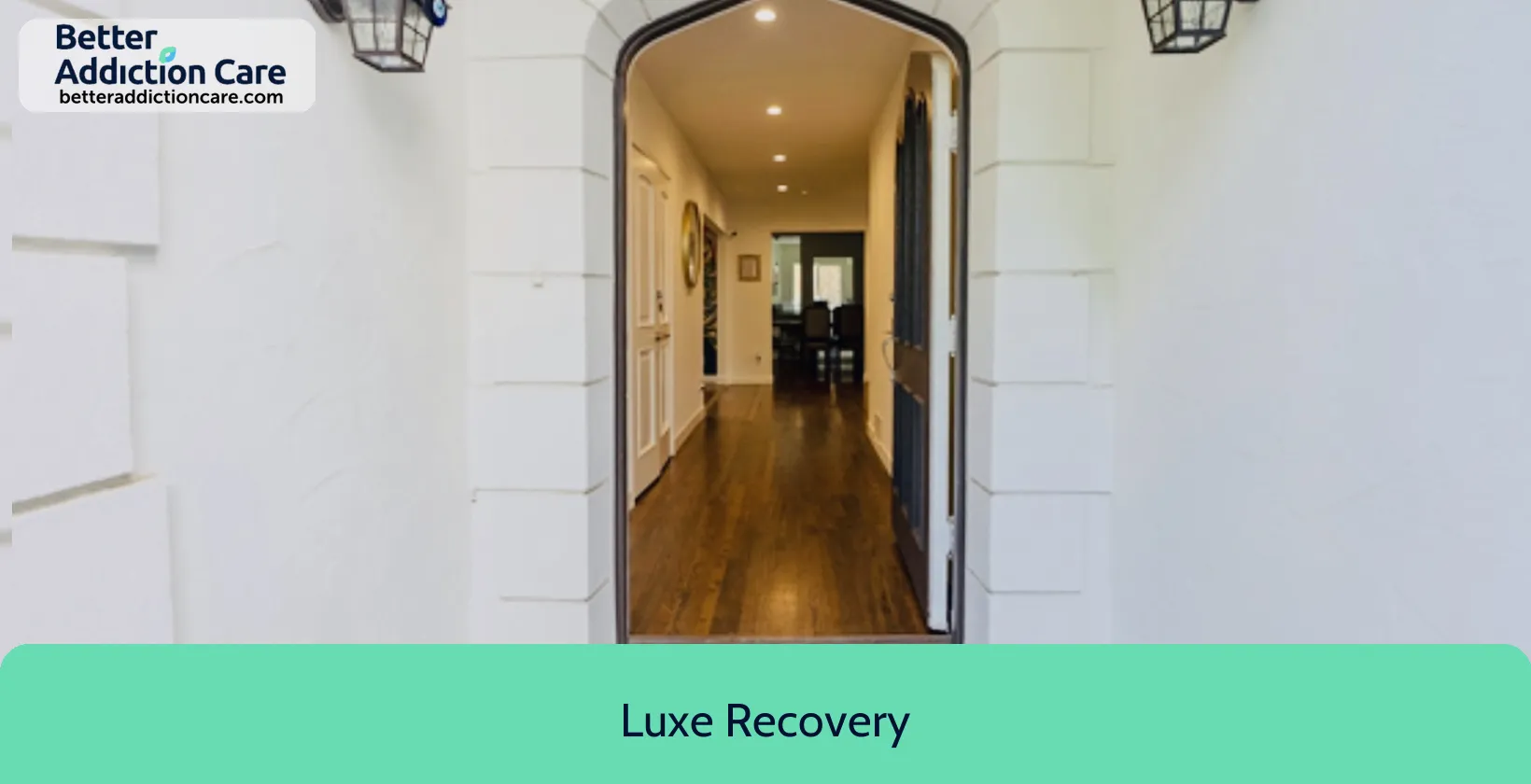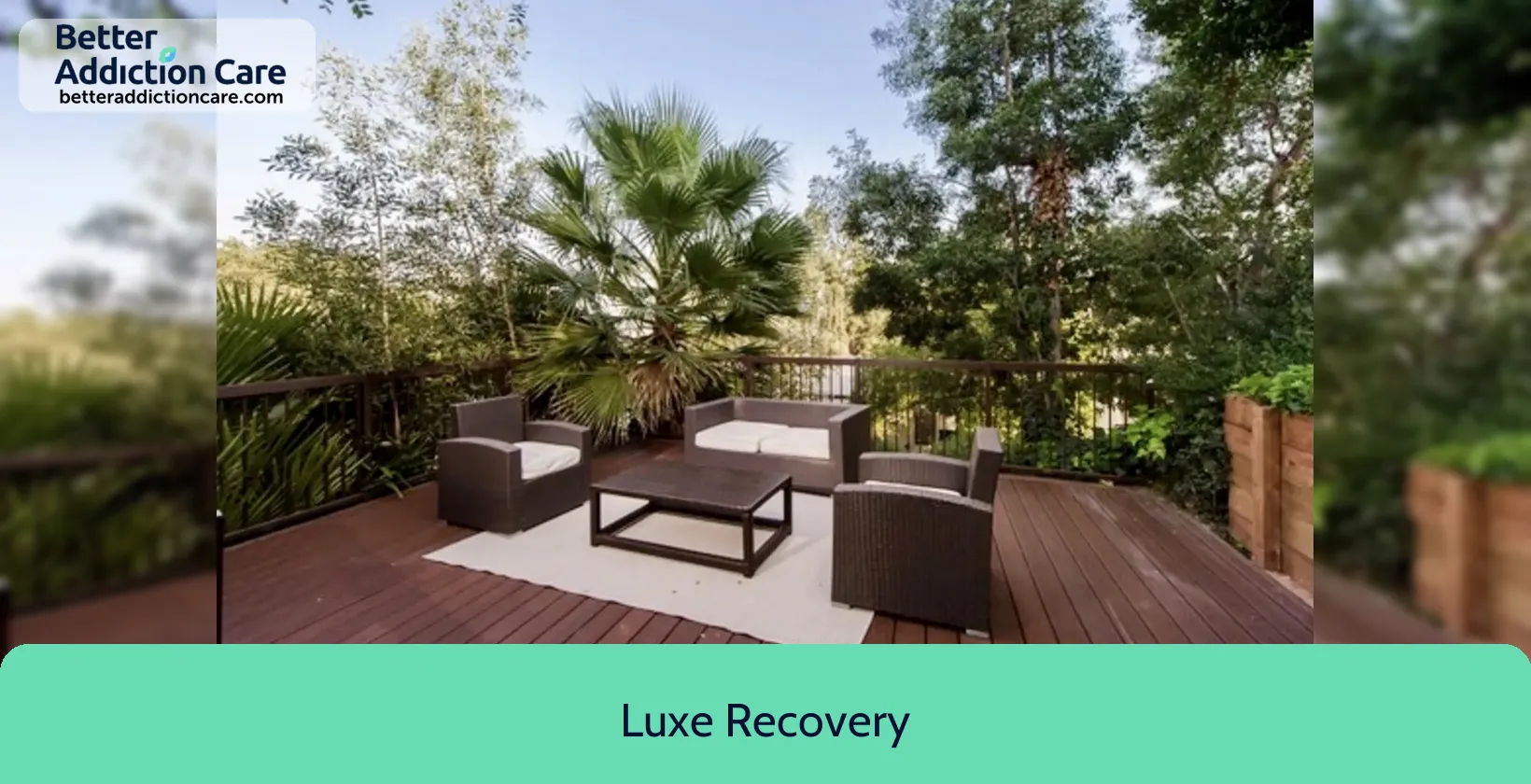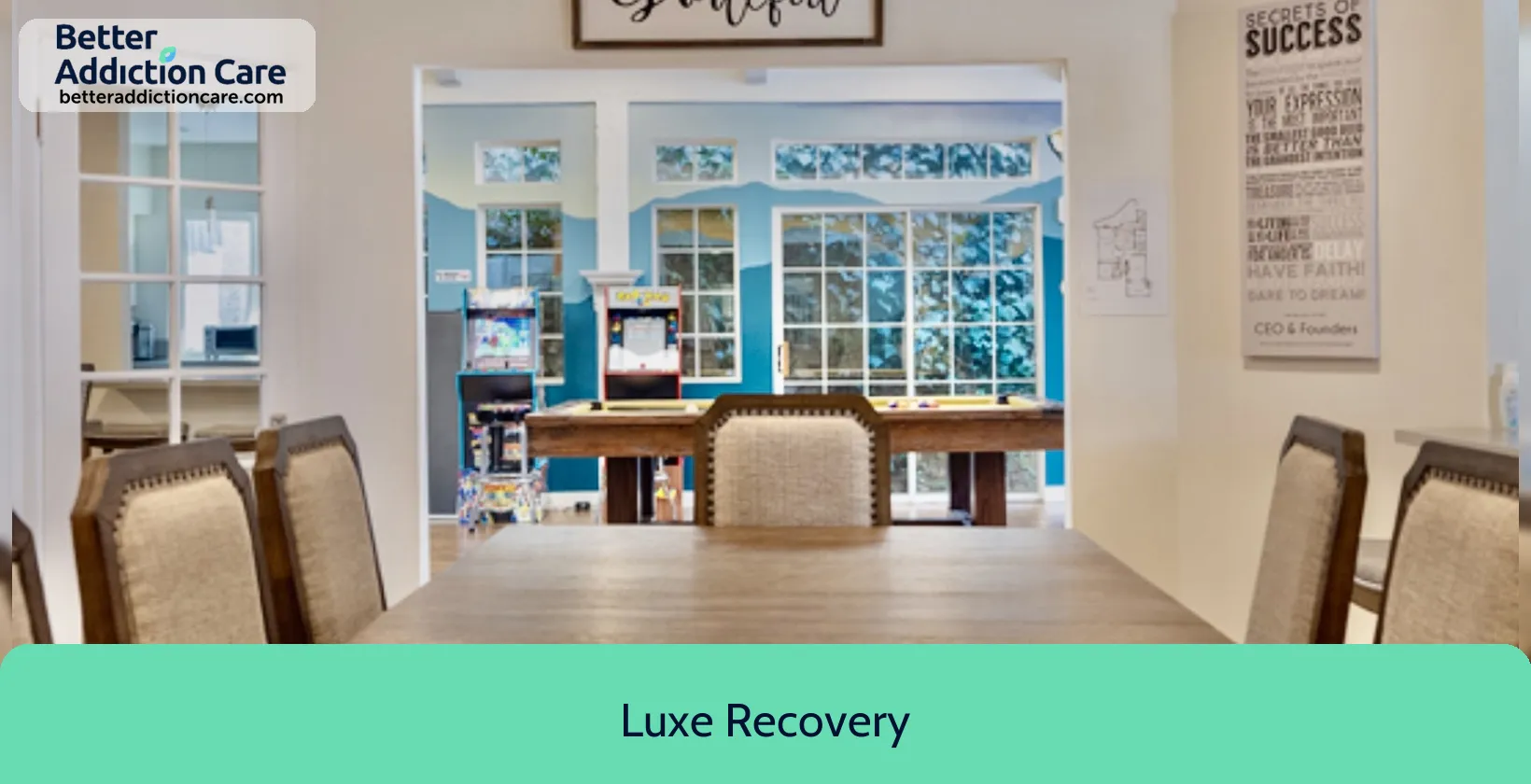Luxe Recovery
Overview
Luxe Recovery is a premier luxury addiction treatment center located in the picturesque hills of Los Angeles, California, within walking distance from Commonwealth Nursery Griffith Park. Offering both outpatient and inpatient programs, Luxe Recovery provides a holistic approach to treatment, addressing the individual needs of the mind, body, and soul.
For those opting for the residential program, clients will reside in a relaxed, home-like setting complete with a myriad of amenities designed to facilitate focus on recovery. The facility is dedicated to treating co-occurring disorders, addressing both mental health issues and substance abuse, recognizing the complex interplay between the two conditions.
Luxe Recovery is renowned for its dual-diagnosis luxury detox and rehab services, offering world-class treatment for substance abuse and mental health. The center prides itself on its understanding of clients' needs and the paths that have led them to seek help. Utilizing a multidisciplinary team approach, Luxe Recovery's treatment planning addresses each client's unique requirements. The team includes a Medical Director specializing in detox medicine, a Clinical Director, Registered Nurses, Licensed Clinicians with expertise in dual diagnoses, and professional case managers.
The philosophy at Luxe Recovery is that addiction stems from pain and trauma, but it is treatable and healable. The facility custom-tailors individualized treatment programs for each resident, providing the tools necessary to establish healthy connections and pursue a life filled with meaning and purpose.
Luxe Recovery stands out for its personalized approach. Unlike other facilities, every day at Luxe is unique, with innovative activities designed to aid the recovery process. Clients can participate in daily group meetings, therapy sessions, personal training, massages, and acupuncture. Additionally, weekly sober outings to the beach, restaurants, movies, and spas are organized.
The luxury experience at Luxe Recovery includes enjoying delicious meals prepared by a private chef and engaging in fun activities in the massive game room. With a maximum capacity of six clients and a 3:1 staff-to-client ratio, Luxe ensures personalized attention for every individual. The facility offers private rooms with king beds and shared rooms, as well as a heated pool and spa for daily relaxation and exercise.
Luxe Recovery is LegitScript verified as of January 2022 and holds a state license from California. Former clients frequently praise Luxe for transforming their lives, underscoring the center's commitment to helping individuals overcome addiction and live fulfilling, sober lives.
Luxe Recovery at a Glance
Payment Options
- Cash or self-payment
- Private health insurance
Assessments
- Comprehensive mental health assessment
- Comprehensive substance use assessment
Age Groups
- Adults
- Seniors
- Young adults
Operation
- Private for-profit organization
Highlights About Luxe Recovery
6.74/10
With an overall rating of 6.74/10, this facility has following balanced range of services. Alcohol Rehabilitation: 8.00/10, Drug Rehab and Detox: 6.00/10, Insurance and Payments: 6.00/10, Treatment Options: 6.97/10.-
Alcohol Rehabilitation 8.00
-
Treatment Options 6.97
-
Drug Rehab and Detox 6.00
-
Insurance and Payments 6.00
Accreditations
State department of health:

Government agencies issue State Licenses, which grant rehabilitation organizations permission to conduct their operations lawfully within specific geographic regions. Licenses needed to operate are typically determined by the type of rehabilitation program offered by the facility and its physical location.
Registration: 191121AP
LegitScript:

The LegitScript Accreditation signifies an organization's commitment to ethical and high-quality care in the field of addiction treatment and behavioral health. This accreditation allows treatment providers to be included in Google's network, ensuring compliance with HIPAA privacy regulations.
Treatment At Luxe Recovery
Treatment Conditions
- Mental health treatment
- Substance use treatment
- Co-occurring Disorders
- Alcoholism
- Opioid Treatement
Care Levels
- Luxury Treatment
- Aftercare
- Hospital inpatient treatment
- Detoxification
- Hospital inpatient detoxification
Treatment Modalities
- Nutrition Therapy
- Recreational Therapy
- Cognitive Behavioral Therapy
- Dialectical Behavior Therapy
- Group counseling
Common Questions About Luxe Recovery
Contact Information
Read our Most Recent Article About Drug Addiction
DISCLAIMER: The facility name, logo and brand are the property and registered trademarks of Luxe Recovery, and are being used for identification and informational purposes only. Use of these names, logos and brands shall not imply endorsement. BetterAddictionCare.com is not affiliated with or sponsored by Luxe Recovery.
